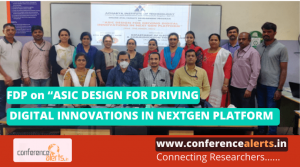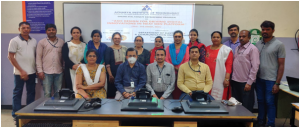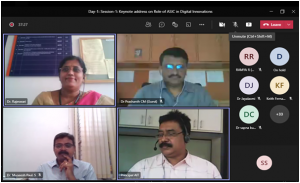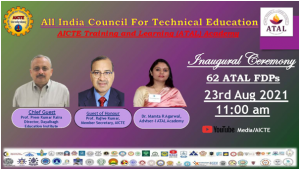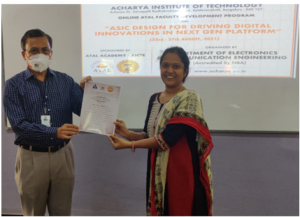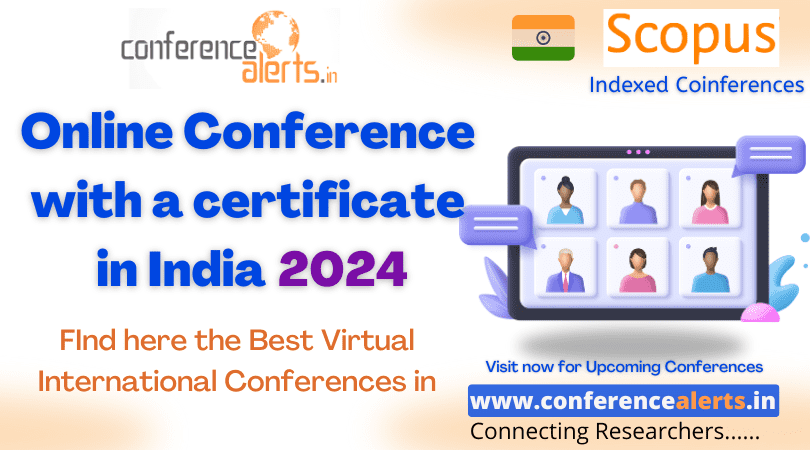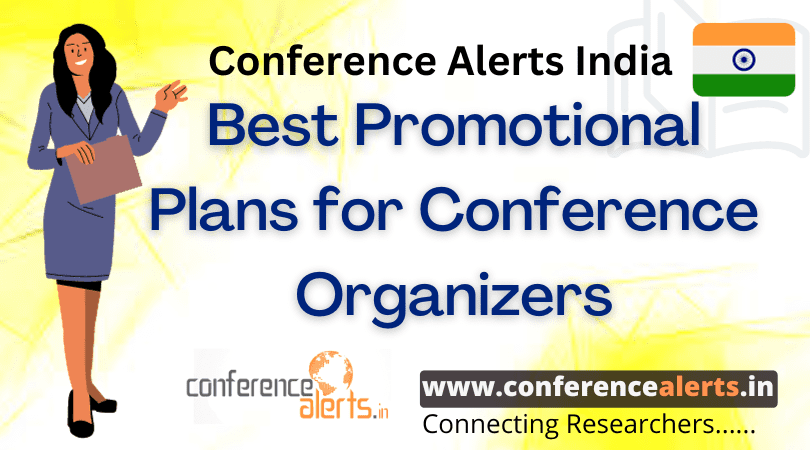NEWS and UPDATE: The AICTE encourages academic excellence in technical education and has taken several quality initiatives. AICTE Training and Learning (ATAL) Academy is one such initiative that has been conducting various Faculty Development Programs for imparting/upgrading faculty knowledge in emerging thrust areas like IoT, ML, AI, robotics, blockchain, renewable energy, augmented & virtual reality. These FDPs are being conducted by various prominent organizations such as IITs, IIMs, IIITs NITs, IISc, ISI, JNU, BARC, DRDO, central universities engaging distinguished experts from academia, industry, research organizations from within the country and abroad.
Recently a Five Days Online Faculty Development Programme- FDP on “ASIC DESIGN FOR DRIVING DIGITAL INNOVATIONS IN NEXTGEN PLATFORM”(ATAL FDP-2021-22) sponsored by AICTE New Delhi Under ATAL Learning Scheme was successfully conducted in the Department of Electronics & Communication Engineering, Acharya Institute of Technology, Bengaluru, Karnataka on 23rd August 2021 — 27th August 2021. The FDP program received an overwhelming response with overall 104 participants from various engineering colleges across India.
The program was inaugurated in the morning by Dr.Maneesh Paul S, Campus Director Acharya Institutes, Bengaluru, Dr. Prakash M R, Principal AIT, Bengaluru, Dr.Prashant C M Dean Faculty Development, AIT, Bengaluru, Dr.Rajeswari, Program Chair Dean Academics, AIT Bengaluru & Mrs.Sumalatha.S, Coordinator, FDP.
The inauguration was followed by a Keynote session on “Role of ASIC in Digital Innovations” by Dr.Rajeswari, Professor and Head of, Department of ECE. The common ATAL FDP inaugural session of 62- online FDPs was held after the keynote session. Prof. Prem Kumar Kalra, Director, Dayalbagh Education institute was the chief guest for the inaugural Ceremony’ and Prof. Rajive Kumar, Member Secretary, AICTE was the guest of honor for the session. The academic leader, Prof. Prem Kumar Kalra shared his expertise and views on the need for comprehensive, continuous, rigorous faculty training in a dynamic, disruptive technological teaching-learning ecosystem, evolving trends, and translating academic research into impactful applications.
This was followed by the lectures on Microchips using IC Technology for Healthcare Applications by Dr. Hardik J Pandya, Assistant Professor, Division of EECS, IISc Bengaluru. His session highlighted IC Technology for Healthcare Applications, Role of Medical Devices in Healthcare, challenges and Opportunities in Healthcare devices. The major Technology and tools used for designing ASIC digital circuits and their functional verification were described by Mrs. Saraswathi .B.P, physical design engineer, Entuple Technologies Pvt ltd.
Second day 24-08-2021
There were three sessions on each day of the event. On the second day 24-08-2021 first session was taken by Mr. Paul Kaunds, Founder & CEO, P&C-UK Silicon to Systems Company, explained the concepts of Challenges in ASIC/SOC Design and Verification, second and third sessions gave the complete knowledge on the physical design process and report analysis by Mrs. Saraswathi. B.P.
The third day 25-08-2021
Third day 25-08-2021 first and second session taken by Dr. H. V. Ravish Aradhya Professor & Associate Dean, R.V College of Engineering, Bengaluru on Low power implementation techniques for ASIC physical design. The session gave detailed methods LPVLSI design: like 1. Conventional CMOS designs methods, 2. Energy recovery design methods:(i) Reversible Logic (ii) Adiabatic Logic (iii) quantum Computing, 3. By using advanced Devices-FINFETs, GNFETs, CNTFETs, etc., last session of the day was taken by Dr . Amit M Joshi, Assistant Professor, Malaviya National Institute of Technology, Jaipur on Role of ML for Traditional Healthcare to Smart Healthcare, Models of Smart Healthcare-mHealth, eHealth, eHealth, Applications of AI & ML in Smart Electronics Healthcare Systems, Role of Machine Learning during Pandemic, Challenges of Machine Learning in Healthcare.
The fourth day 26-08-2021
The fourth day 26-08-2021 first session taken by Mr. Darshan C Ganji , AI Developer , Sand Logic Pvt.Ltd , Bengaluru on Design of Deep Learning Hardware Accelerators in SOC design. Hardware Acceleration is the implementation of computing tasks in hardware to decrease latency, reduce power consumption and increase throughput. The second and third session on open source tools for ASIC/SOC digital tool flows for chip, package and board. Bring Electronic Design Automation (EDA) research closer to industry and designers and traditional Debug Approaches and Solutions was described by Mr. Aloke Kumar Das , Director of Lab and Lectures and business consultant in Cerium Systems, FrenusTech and Augstha App Labs. Vice Chair, IEEE CAS Bengaluru.
The fifth day 27-08-2021
The fifth day 27-08-2021 first session taken by Mr. Paul Kaunds, Founder & CEO , P&C-UK Silicon to Systems Company, explained the concepts of Chip Design Innovations in Industry. This session was followed by a session on Comparative solutions of Digital Designs-FPGA / ASIC explained by Dr. Hanumantharaju M.C, Professor, Department of ECE, BMS Institute of Technology and Management, Bengaluru. In the last session of the day the Stress Management gave detailed techniques of energizing body by Deep Breathing Techniques, simple meditation techniques to manage multiple tasks and handling unconditional situations by Mr. Ujjwal Shankar ji, senior faculty, The Art of Living Foundation. Finally, the FDP program was successfully concluded by a valedictory session where all the participants gave their oral feedback.
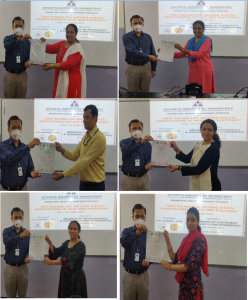
On the whole, the FDF on “ASIC DESIGN FOR DRIVING DIGITAL INNOVATIONS IN NEXTGEN PLATFORM” received a lot of positive feedback from participants. The FDP in the core domain gave a complete insight of ASIC design flows, tools, technologies, and challenges in chip design and finally, the need for ASIC solutions in current AI, ML, and health care domains were the highlights of FDP which gave path for the researchers to define and develop the research solutions.

